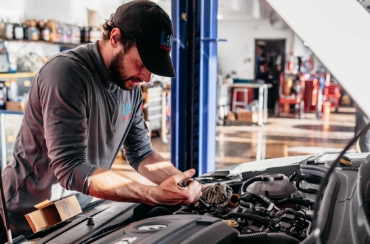All Categories
Featured
The surge of electrical lorries (EVs) has caused substantial improvements in lasting transport, but it additionally provides an expanding issue: what takes place to EV batteries when they are no longer functional? These batteries, which consist of important products such as lithium, cobalt, and nickel, can not simply be thrown out. Recycling them is vital to decrease ecological damage and recover essential sources. Service centers have entered this space, providing electrical vehicle battery reusing services to satisfy the demands of eco-conscious EV proprietors.
![]()
Environmental Management: Protecting against dangerous chemicals from polluting soil and water. Resource Recovery: Removing multiple-use products like lithium and cobalt to decrease the demand for new mining procedures. Power Efficiency: Recycling uses less power than sourcing resources, adding to a lower carbon footprint. As millions of EV batteries are expected to reach the end of their lifecycle in the coming years, the demand for reusing remedies has never been greater.
Collection and Safe Storage: Many repair stores gather utilized EV batteries from consumers and store them safely till they can be moved to reusing facilities. Collaborations with Recyclers: Shops frequently work together with specialized recycling firms that remove and repurpose useful products. Repurposing Initiatives: Some batteries, although no longer ideal for vehicles, can be repurposed for stationary energy storage space options, a service some service center facilitate. 3. Partnerships with Suppliers and Recycling Programs. To enhance the reusing process, service center usually companion with EV suppliers and third-party recyclers. Examples include:
Supplier Programs: Brands like Nissan and BMW have carried out battery recycling campaigns, making use of qualified service center to collect and handle made use of batteries. Third-Party Recyclers: Companies like Redwood Materials and Li-Cycle deal with independent service center to recycle batteries from various EV brand names. These partnerships make certain that recycling is managed responsibly and efficiently, with marginal ecological influence.
Benefit: Clients can recycle batteries locally without navigating intricate reusing networks. Cost Cost savings: Some stores use trade-in credit histories or discounts on substitute batteries when clients recycle their old ones. Sustainability Guarantee: Partnering with reputable shops assurances that batteries are reused in conformity with environmental policies. 5. Obstacles in Expanding Recycling Providers. Despite progression, there are obstacles to making battery recycling generally available:
Educating Needs: Managing EV batteries safely requires specialized expertise and tools, which not all repair work stores possess. Price of Recycling: Transferring and processing batteries can be expensive, presenting an obstacle for smaller stores. Restricted Framework: In some regions, access to reusing facilities is still underdeveloped. Producers and federal governments are working to address these concerns through rewards, funding, and research into much more effective reusing innovations.
![]()
Verdict. Yes, repair work shops offering electric vehicle battery recycling are ending up being a vital part of the EV ecosystem. By working together with manufacturers, recyclers, and environmental programs, these services are aiding to ensure that the shift to electric transportation is as sustainable as feasible.
For EV owners, selecting repair service stores with recycling capabilities is not just a functional decision however additionally a responsible one. With each other, repair customers, makers, and shops can create a sustainable future where EV batteries are not wasted yet repurposed, recycled, and reused for the advantage of the earth.

- The Significance of Reusing EV Batteries. Unlike standard automobile batteries, EV batteries are large and complex, with one-of-a-kind recycling demands. Appropriate recycling is crucial for a number of factors:
Environmental Management: Protecting against dangerous chemicals from polluting soil and water. Resource Recovery: Removing multiple-use products like lithium and cobalt to decrease the demand for new mining procedures. Power Efficiency: Recycling uses less power than sourcing resources, adding to a lower carbon footprint. As millions of EV batteries are expected to reach the end of their lifecycle in the coming years, the demand for reusing remedies has never been greater.
- How Repair Shops Add To Battery Recycling. Repair stores play an essential role in the EV ecological community by supplying easily accessible and reliable recycling alternatives. Here's just how they support sustainability:
Collection and Safe Storage: Many repair stores gather utilized EV batteries from consumers and store them safely till they can be moved to reusing facilities. Collaborations with Recyclers: Shops frequently work together with specialized recycling firms that remove and repurpose useful products. Repurposing Initiatives: Some batteries, although no longer ideal for vehicles, can be repurposed for stationary energy storage space options, a service some service center facilitate. 3. Partnerships with Suppliers and Recycling Programs. To enhance the reusing process, service center usually companion with EV suppliers and third-party recyclers. Examples include:
Supplier Programs: Brands like Nissan and BMW have carried out battery recycling campaigns, making use of qualified service center to collect and handle made use of batteries. Third-Party Recyclers: Companies like Redwood Materials and Li-Cycle deal with independent service center to recycle batteries from various EV brand names. These partnerships make certain that recycling is managed responsibly and efficiently, with marginal ecological influence.
- Advantages for EV Proprietors. Service centers providing battery recycling solutions supply considerable benefits to EV owners:
Benefit: Clients can recycle batteries locally without navigating intricate reusing networks. Cost Cost savings: Some stores use trade-in credit histories or discounts on substitute batteries when clients recycle their old ones. Sustainability Guarantee: Partnering with reputable shops assurances that batteries are reused in conformity with environmental policies. 5. Obstacles in Expanding Recycling Providers. Despite progression, there are obstacles to making battery recycling generally available:
Educating Needs: Managing EV batteries safely requires specialized expertise and tools, which not all repair work stores possess. Price of Recycling: Transferring and processing batteries can be expensive, presenting an obstacle for smaller stores. Restricted Framework: In some regions, access to reusing facilities is still underdeveloped. Producers and federal governments are working to address these concerns through rewards, funding, and research into much more effective reusing innovations.

- The Future of EV Battery Recycling. As the EV market remains to expand, the function of service center in battery recycling will certainly become also extra vital. Regulatory needs are motivating makers and repair networks to create extensive recycling systems. Emerging modern technologies are likewise boosting the efficiency of product healing, making recycling much more affordable and extensively obtainable.
Verdict. Yes, repair work shops offering electric vehicle battery recycling are ending up being a vital part of the EV ecosystem. By working together with manufacturers, recyclers, and environmental programs, these services are aiding to ensure that the shift to electric transportation is as sustainable as feasible.
For EV owners, selecting repair service stores with recycling capabilities is not just a functional decision however additionally a responsible one. With each other, repair customers, makers, and shops can create a sustainable future where EV batteries are not wasted yet repurposed, recycled, and reused for the advantage of the earth.
Latest Posts
Revolutionary Innovations in Laser Eye Surgical Treatment
Published Jan 17, 25
0 min read
A-Abel Roofing: Roofing Excellence Starts Here
Published Jan 17, 25
1 min read
Full Circle Marketing: Achieve Your Vision with Proven Results
Published Jan 17, 25
1 min read